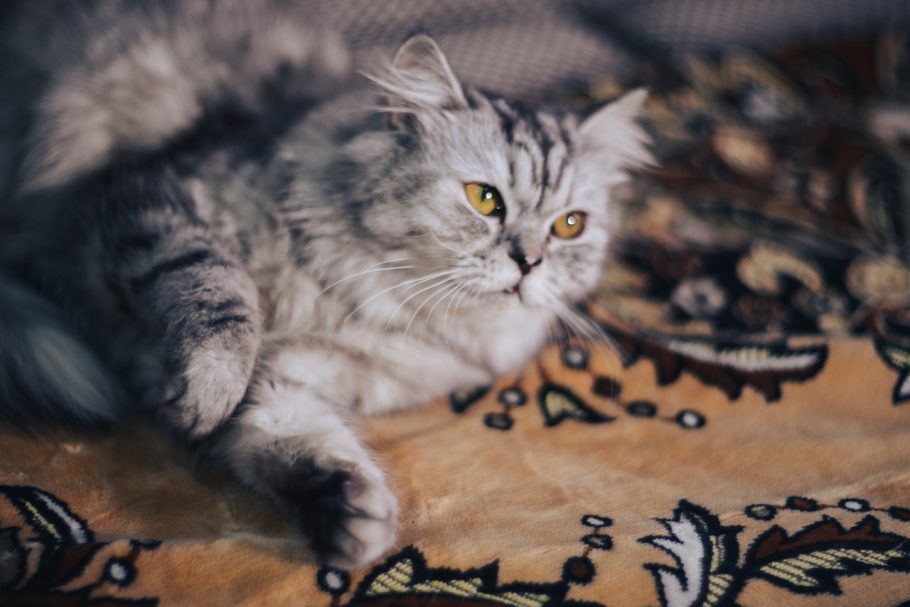Despite the widespread belief among many cat owners, do cats really hold grudges against humans? This idea is often reinforced by owners who experience negative behavior from their pets after certain actions, such as taking them to the vet or being trimmed. However, the question remains: is this simply a myth, or is there actual scientific evidence to support it? In this article, we will delve into the idea of cats holding grudges and investigate whether it is truly accurate or simply a misconception. Through exploring the psychology of cats, understanding feline communication, and examining relevant studies, we will determine whether cats truly have the capability of holding grudges. So, let’s investigate and uncover the truth behind this popular myth.
The Psychology of Cats
Understanding the psychology of cats is crucial when it comes to figuring out whether or not they are capable of holding grudges. While cats may not have the same emotional complexities as humans, they do have a range of emotions that influence their behavior. Cats are highly independent animals and can become easily stressed in unfamiliar or uncomfortable situations. However, there is no evidence to suggest that they hold grudges against their owners.
In fact, studies have shown that cats have a relatively short memory span and are more likely to react to their current environment and immediate stimuli than hold onto negative emotions from the past. This means that, even if a cat seems upset after a specific incident with their owner, it is unlikely that they are intentionally holding a grudge.
It is also important to note that cats communicate differently than humans. Their body language, vocalizations, and other nonverbal cues may be misinterpreted by their owners, leading to misunderstandings and the belief that cats are holding grudges. By learning more about feline communication and behavior, owners can better understand their pets and build a stronger relationship with them.
Anthropomorphism and Misunderstanding Feline Communication
Anthropomorphism is the tendency to attribute human-like qualities and emotions to animals. This is a common behavior among pet owners, and cats are not an exception. When owners attribute human emotions to their cats, they are more likely to believe that their cat is holding a grudge against them when they exhibit negative behavior. However, this is not the case. Cats do not have the ability to hold onto negative emotions towards their owners. It is more likely that they are responding to their environment or the actions of their owners in the moment.
Furthermore, misunderstanding feline communication can also reinforce the belief that cats hold grudges. Cats communicate using different body language cues that might be misinterpreted by their owners. For example, a cat might display flattened ears and a puffed-up tail when they are afraid or angry, but these cues can be taken as a sign of holding a grudge. Understanding and interpreting feline communication accurately can help reduce misconceptions about cats holding grudges.
Understanding Feline Communication
Communicating effectively with a cat involves more than just listening to what they say. Since cats cannot verbally communicate with us, we need to learn to interpret their body language, vocalizations, and other nonverbal cues. Understanding their communication is important in debunking the myth that cats hold grudges.
Cats often use their entire body to communicate their emotions and intentions. For example, when a cat’s ears are upright and facing forward, it usually means they are alert and interested. On the other hand, if their ears are flattened against their head, it usually means they are feeling threatened or fearful.
Vocalizations also play a big role in feline communication. Purrs can indicate affection or contentment, while meows can signal requests for attention or food. Hissing and growling, however, are warning signs of aggression or fear.
Other nonverbal cues to pay attention to include the position of a cat’s tail, which can indicate their mood, and their body posture, which can show whether they are relaxed or on high alert. By learning to read these cues, owners can better understand their cat’s emotions and behavior.
Love Bites and Play Aggression
Cats are known for showing affection towards their owners through playful bites and scratches. While these actions are often harmless and a sign of love, they can also lead to misconceptions about cats holding grudges.
It’s important to understand that cats communicate through body language and these playful bites and scratches are a way for them to express their emotions and playfulness. It’s not a sign of resentment or grudges being held against their owners.
However, it’s important for cat owners to be aware of their pet’s behavior and ensure that they are not encouraging aggressive behavior through play. Positive reinforcement and training can help shape a cat’s behavior and prevent any misinterpretation of their actions as holding a grudge.
Nonverbal Communication
Cats are known for communicating through nonverbal cues, such as the position of their ears, tail, and body posture. For example, a raised tail may indicate a friendly greeting, while a puffed-up tail may indicate fear or aggression. Similarly, flattened ears may indicate anger or discomfort, while upright ears may show curiosity or alertness.
Understanding these nonverbal cues can help owners understand their cat’s emotions and behavior. It can also help prevent misinterpretation of their actions, as what may seem like holding a grudge may actually be a reaction to a particular situation or environment.
Some common nonverbal cues to be aware of include: dilated pupils (indicating excitement or fear), a relaxed body posture (indicating comfort), and slow blinking (indicating trust and affection). By paying attention to these cues, owners can better understand their cat’s behavior and strengthen their bond with them.
The Evidence: Do Cats Hold Grudges?
Several studies have been conducted on feline memory and behavior, but there has been no conclusive evidence to support the idea that cats hold grudges. One study found that cats do not exhibit long-term memory when it comes to negative experiences with humans. In fact, cats have been shown to readily forgive and forget within minutes of a negative interaction.
It is also important to note that cats are reactive animals and their behavior is largely a response to their immediate environment and the actions of their owners. If a cat is exhibiting negative behavior towards their owner, it is more likely due to a current situation rather than holding onto negative emotions from the past.
Therefore, it is important for cat owners to pay attention to their cat’s behavior and communication, and to build a strong relationship with positive reinforcement. By creating a positive environment and rewarding good behavior, owners can help alleviate any misconceptions about cats holding grudges.
Studies on Feline Memory
There have been several studies conducted on feline memory, but none have provided concrete evidence to support the idea that cats hold grudges. Some studies have suggested that cats have long-term memory and can remember events from even years prior, while others have found that cats have a more limited memory span. However, regardless of memory ability, there is little to no evidence that suggests cats hold grudges against their owners. While cats may exhibit behavior that seems like retaliation, it is more likely that they are reacting to their environment or the actions of their owners in the moment, rather than holding onto negative emotions. Therefore, it is important for cat owners to understand feline communication and build a strong relationship with their pet through positive reinforcement.
The Role of Positive Reinforcement
Positive reinforcement is a powerful tool when it comes to shaping a cat’s behavior and strengthening the bond between owner and pet. By rewarding positive behavior, cats learn what is expected of them and are more likely to repeat the desired actions. This can include anything from offering treats or affection to verbal praise or toys.
Through positive reinforcement, owners can create a more positive and enjoyable environment for their cats, reducing the likelihood of negative behaviors and misunderstandings. When a cat feels loved and appreciated, they are less likely to hold grudges or harbor negative emotions towards their owner.
It is important to note that positive reinforcement should be used consistently and appropriately. Over-rewarding or rewarding the wrong behaviors can actually reinforce negative actions and lead to confusion for the cat. Owners should also be patient and consistent in their training, as cats may take some time to learn and adjust to new behaviors.
Overall, positive reinforcement can play a major role in fostering a strong and positive relationship between cats and their owners, reducing the likelihood of misconceptions and misunderstandings about holding grudges.
Conclusion
After examining the psychology and behavior of cats, it appears that there is little evidence to support the idea that cats hold grudges against their owners. Instead, cats seem to react to their environment and the actions of their owners in the moment. It is important for cat owners to understand feline communication and to build a strong relationship with their pets through positive reinforcement.
Positive reinforcement can play a key role in shaping a cat’s behavior towards their owner. This includes rewarding positive behavior, such as using a scratching post or using the litter box correctly. By doing so, owners can create a stronger bond with their cats and reduce the likelihood of any negative emotions or misconceptions about holding grudges.
In summary, while the myth of cats holding grudges is widespread, it is more likely that cats simply react to their environment and the actions of their owners. By understanding feline communication and using positive reinforcement, cat owners can create a strong and healthy relationship with their beloved pets.




